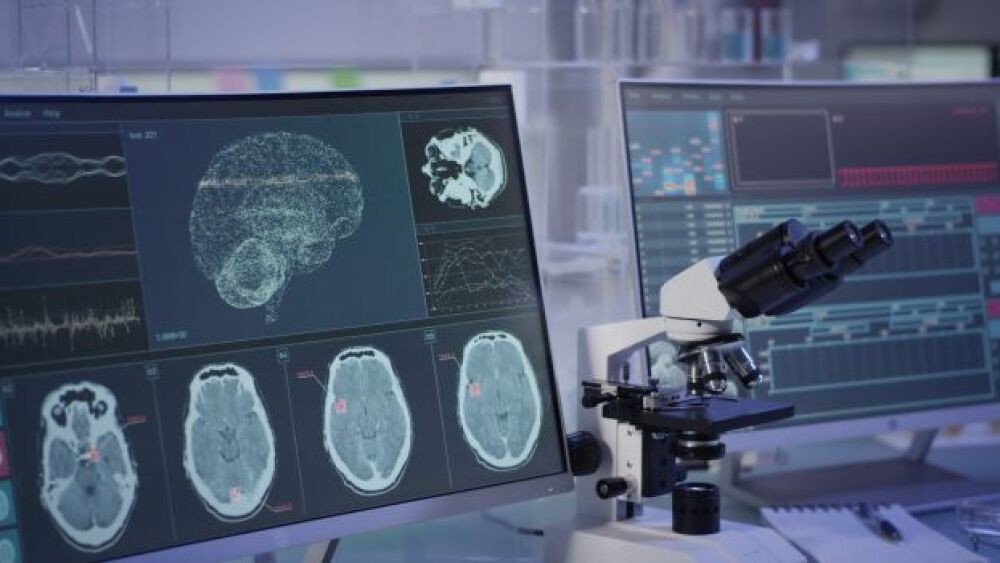Biohaven Pharmaceutical Holding announced the acquisition of Channel Bio and new licensing rights to a spinal muscle atrophy drug from Bristol Myers Squibb.
Biohaven, a clinical-stage biopharmaceutical company that innovates late-stage products for neurological and neuropsychiatric diseases, announced two major growth achievements: the acquisition of Channel Bio, a company that has developed a treatment for epilepsy, and licensing rights to a spinal muscle atrophy drug from Bristol Myers Squibb (BMS). These two acquisitions will boost Biohaven’s ambitious plans for neurological disease treatments.
The New Haven, Connecticut-based company announced it had acquired Channel Bio, a subsidiary of Knopp Biosciences, for about $100 million in cash and stock. Channel Bio’s flagship product is BHV-7000, a drug to help treat the symptoms of epilepsy. By targeting the Kv7 ion pathway in the brain, the drug helps regulate electrical signal firing. When electrical signals misfire in the brain, it often triggers an epileptic episode.
The drug is currently expected to undergo clinical trials later this year. Channel Bio is optimistic about the treatment, as it forays into a new treatment area that other pharmaceutical companies have not pursued. Unlike its competitor drugs—ezogabine from Bausch Health Companies, which was discontinued in 2017, and XEN1101 from Xenon Pharmaceuticals—BHV-7000 is a small-molecule drug. Because it is structurally different from the other treatments, it could potentially be more effective, and possibly have uses in indications other than epilepsy that also involve the Kv7 ion pathway.
Vlad Coric, M.D., CEO and chairman of the board at Biohaven, said, “With this transaction, we have added one of the most innovative and exciting therapeutic targets for epilepsy to Biohaven’s portfolio. This technology platform is poised to deliver new treatment options for patients suffering from epilepsy.”
Of the $100 million that Biohaven paid, $65 million will go to Biohaven common shares, with the remaining $35 million going to Knopp, Channel Bio’s parent company. Knopp could potentially earn $325 million as the epilepsy drug continues through regulatory approvals and clinical trials in Europe, Japan and the United States. As BHV-7000 is tested to treat additional diseases, an estimated $562.5 million in sales plus royalties could be paid out to Knopp.
The second major announcement from Biohaven is that it has entered into a worldwide license agreement for taldefgrobep alfa, a drug from global biopharma giant BMS to treat spinal muscular atrophy (SMA). SMA is a rare genetic disease where motor neurons and muscle cells are compromised. About one in every 50 Americans is a genetic carrier of SMA. Taldefgrobep attempts to treat the disease by stimulating myostatin, a natural protein that promotes muscle growth.
The drug, an anti-myostatin adnectin, has already gone through some clinical trials. Biohaven plans to put the drug into a Phase III clinical trial beginning later this year.
“The addition of taldefgrobep to Biohaven’s portfolio of clinical-stage rare disease therapies aligns with our mission to make a meaningful difference in the lives of patients and families affected by devastating conditions with high unmet medical need,” said Biohaven Chief Commercial Officer of Rare Diseases John Tilton.
These two milestones complement Biohaven’s other recent successes. Since the company’s IPO in 2017, it has already delivered on some promising clinical trials.
Biohaven is currently developing treatments for a wide variety of painful nerve diseases, such as migraines and trigeminal neuralgia. Other treatment efforts include therapies for multiple myeloma, plaque psoriasis and obsessive-compulsive disorder.
In February 2020, Biohaven received approval from the U.S. Food and Drug Administration for NURTEC™ ODT, a treatment for acute migraines. The drug also received positive opinions from the Committee for Medicinal Products for Human Use of the European Medicines Agency. Biohaven has enrolled patients in a Phase II/III clinical trial to test NURTEC in treating patients with chronic rhinosinusitis as well.
Of the Phase III ready Taldefgrobep, Coric said, “The in-licensing of this late-stage asset [taldefgrobep] demonstrates Biohaven’s commitment to addressing patients’ needs, and particularly those suffering from rare neurodegenerative and neuromuscular disorders.”





